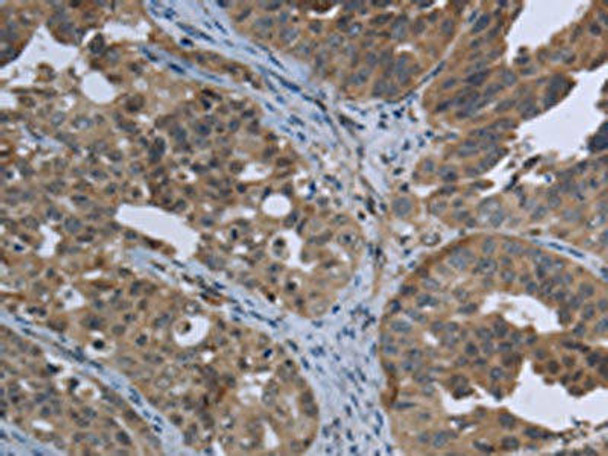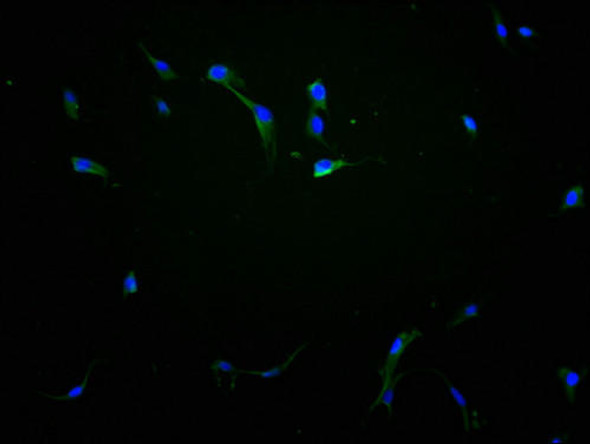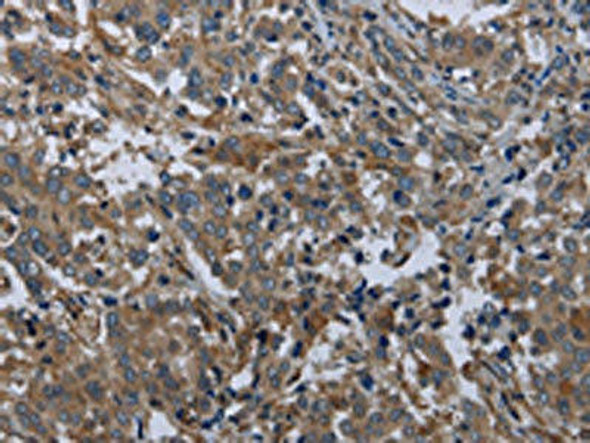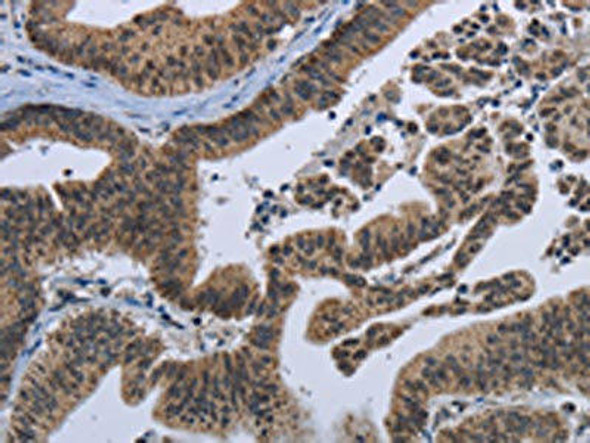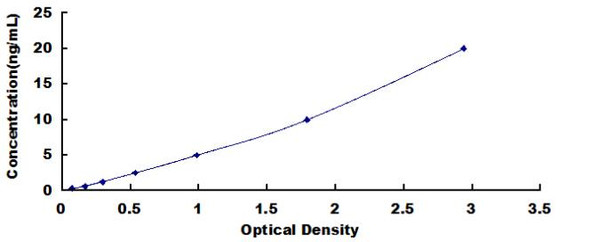EPHA10 Antibody (PACO16261)
- SKU:
- PACO16261
- Product Type:
- Antibody
- Reactivity:
- Human
- Mouse
- Host Species:
- Rabbit
- Isotype:
- IgG
- Applications:
- ELISA
- IHC
- Antibody Type:
- Polyclonal Antibody
- Conjugation:
- Unconjugated
Description
EPHA10 Antibody (PACO16261)
The EphA10 Monoclonal Antibody (PAC016261) is a cutting-edge research tool designed for scientists studying Eph receptors, a family of tyrosine kinase receptors known to play important roles in a variety of cellular processes. This monoclonal antibody, produced through hybridoma technology, has been extensively validated for use in various applications, including immunofluorescence, immunohistochemistry, and flow cytometry. It specifically targets the EphA10 receptor, enabling precise detection and analysis in both normal and diseased tissues.
Eph receptors have been implicated in numerous biological functions, including cell adhesion, migration, and axon guidance. EphA10, in particular, has been linked to several developmental processes and has emerged as a potential therapeutic target in cancer and neurological disorders. By using the EphA10 Monoclonal Antibody, researchers can gain valuable insights into the signaling mechanisms and functional roles of this receptor, paving the way for innovative treatments and interventions in various disease settings.
| Antibody Name: | EPHA10 Antibody (PACO16261) |
| Antibody SKU: | PACO16261 |
| Size: | 50ul |
| Host Species: | Rabbit |
| Tested Applications: | ELISA, IHC |
| Recommended Dilutions: | ELISA:1:1000-1:2000, IHC:1:25-1:100 |
| Species Reactivity: | Human, Mouse |
| Immunogen: | Fusion protein of human EPHA10 |
| Form: | Liquid |
| Storage Buffer: | -20°C, pH7.4 PBS, 0.05% NaN3, 40% Glycerol |
| Purification Method: | Antigen affinity purification |
| Clonality: | Polyclonal |
| Isotype: | IgG |
| Conjugate: | Non-conjugated |
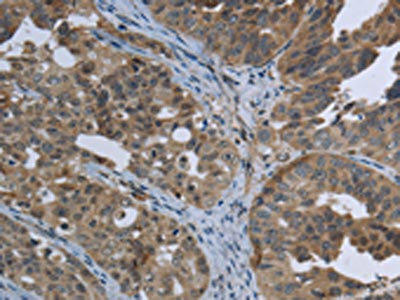 | The image on the left is immunohistochemistry of paraffin-embedded Human ovarian cancer tissue using PACO16261(EPHA10 Antibody) at dilution 1/20, on the right is treated with fusion protein. (Original magnification: x200). |
| Background: | Ephrin receptors, the largest subfamily of receptor tyrosine kinases (RTKs), and their ephrin ligands are important mediators of cell-cell communication regulating cell attachment, shape, and mobility in neuronal and epithelial cells |
| Synonyms: | EPH receptor A10 |
| UniProt Protein Function: | EphA10: Receptor for members of the ephrin-A family. Binds to EFNA3, EFNA4 and EFNA5. Belongs to the protein kinase superfamily. Tyr protein kinase family. Ephrin receptor subfamily. 3 isoforms of the human protein are produced by alternative splicing. |
| UniProt Protein Details: | Protein type:Kinase, protein; Protein kinase, tyrosine (receptor); Membrane protein, integral; Protein kinase, TK; EC 2.7.10.1; TK group; Eph family Chromosomal Location of Human Ortholog: 1p34.3 Cellular Component: plasma membrane Molecular Function:protein binding Biological Process: ephrin receptor signaling pathway |
| NCBI Summary: | Ephrin receptors, the largest subfamily of receptor tyrosine kinases (RTKs), and their ephrin ligands are important mediators of cell-cell communication regulating cell attachment, shape, and mobility in neuronal and epithelial cells (Aasheim et al., 2005 [PubMed 15777695]). See MIM 179610 for additional background on Eph receptors and ephrins.[supplied by OMIM, Mar 2008] |
| UniProt Code: | Q5JZY3 |
| NCBI GenInfo Identifier: | 476007830 |
| NCBI Gene ID: | 284656 |
| NCBI Accession: | Q5JZY3.2 |
| UniProt Secondary Accession: | Q5JZY3,Q6NW42, A4FU89, J3KPB5, |
| UniProt Related Accession: | Q5JZY3 |
| Molecular Weight: | 97,293 Da |
| NCBI Full Name: | Ephrin type-A receptor 10 |
| NCBI Synonym Full Names: | EPH receptor A10 |
| NCBI Official Symbol: | EPHA10 |
| NCBI Protein Information: | ephrin type-A receptor 10 |
| UniProt Protein Name: | Ephrin type-A receptor 10 |
| Protein Family: | Ephrin type-A receptor |
| UniProt Gene Name: | EPHA10 |
| UniProt Entry Name: | EPHAA_HUMAN |
| Secondary Antibody |
| Anti-HRP Goat Anti-Rabbit IgG (H+L) Antibody (CABS014) |
| Recommended Products |
| Anti-FITC Goat Anti-Rabbit IgG (H+L) Antibody (CABS011) |
| Anti-HRP-conjugated Beta Actin Antibody (CABC028) |

